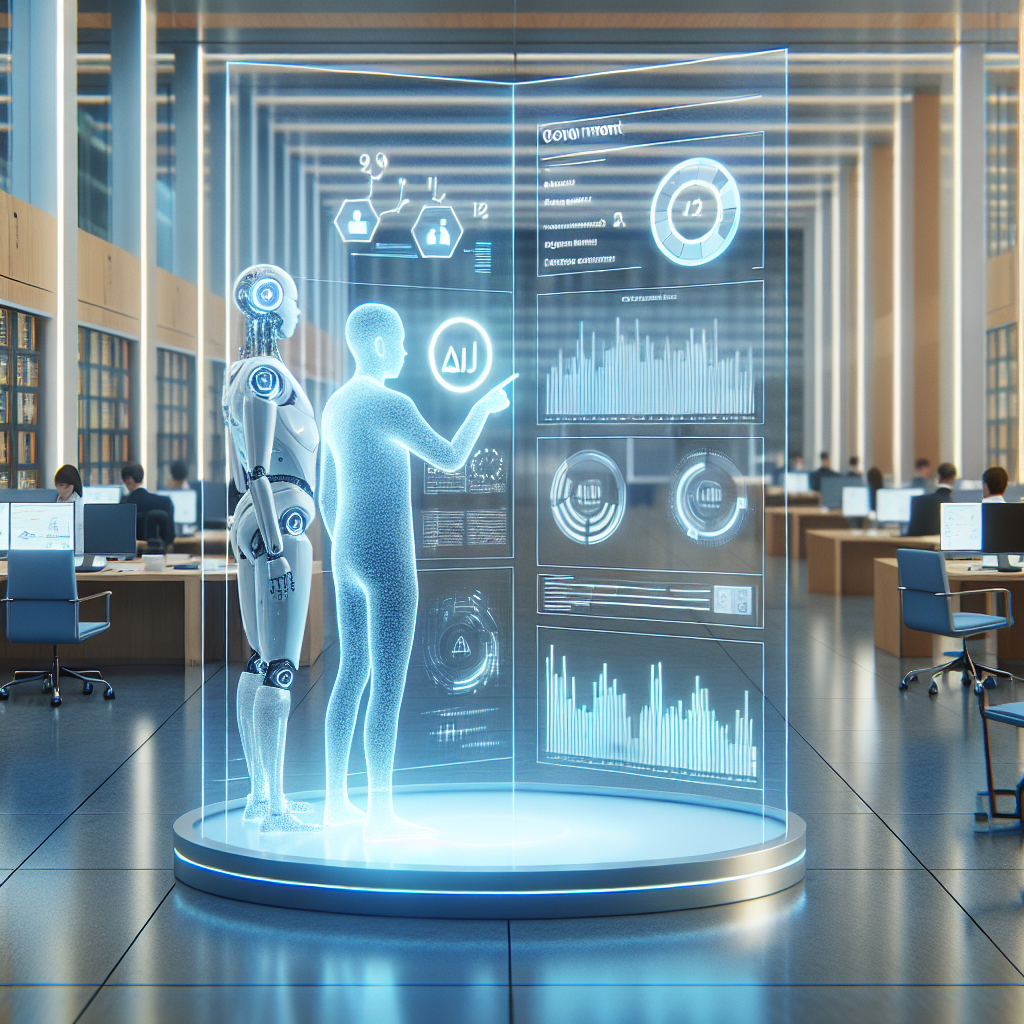Artificial Intelligence (AI) has become an increasingly powerful tool in various sectors, including government policy development and implementation. With its ability to process and analyze vast amounts of data at a rapid pace, AI can help governments make more informed decisions and improve the effectiveness of their policies. In this article, we will explore the benefits of AI in improving government policy development and implementation, as well as address some frequently asked questions about the topic.
Benefits of AI in Government Policy Development and Implementation
1. Data Analysis and Prediction
One of the key benefits of AI in government policy development is its ability to analyze large amounts of data to identify trends and patterns. By analyzing data from various sources, including surveys, social media, and government databases, AI can help policymakers understand the needs and preferences of the population more accurately. This, in turn, can lead to the development of more targeted and effective policies.
Furthermore, AI can also be used to predict the potential outcomes of different policy options. By using machine learning algorithms, AI can analyze historical data and simulate different scenarios to predict the impact of policy decisions. This can help policymakers make more informed decisions and anticipate potential challenges before they arise.
2. Automation of Routine Tasks
Another benefit of AI in government policy development is its ability to automate routine tasks, such as data entry and analysis. This can free up valuable time for policymakers to focus on more strategic tasks, such as developing new policies and evaluating existing ones. By automating routine tasks, AI can help governments streamline their policy development process and make it more efficient.
In addition, AI can also help governments monitor the implementation of policies in real-time. By analyzing data from various sources, such as sensors and social media, AI can provide policymakers with up-to-date information on the effectiveness of their policies. This can help governments identify any issues or bottlenecks in the implementation process and take corrective action as needed.
3. Personalized Policy Recommendations
AI can also be used to provide personalized policy recommendations to individuals or specific groups within the population. By analyzing data on individual preferences, behaviors, and needs, AI can help policymakers tailor policies to better meet the needs of different segments of the population. This can lead to more targeted and effective policies that are more likely to be accepted and implemented by the public.
Furthermore, AI can also help governments identify marginalized or underserved populations that may be overlooked in the policy development process. By analyzing data on social and economic indicators, AI can help policymakers identify areas where interventions are needed and develop targeted policies to address these issues.
4. Improved Decision-Making
Overall, AI can help governments improve their decision-making processes by providing policymakers with more accurate and timely information. By analyzing data from multiple sources, AI can help policymakers identify emerging trends and challenges, as well as evaluate the impact of different policy options. This can help governments make more informed decisions that are based on evidence and data, rather than intuition or anecdotal evidence.
Furthermore, AI can also help governments evaluate the effectiveness of their policies in real-time. By analyzing data on key performance indicators, such as crime rates or unemployment rates, AI can help policymakers assess the impact of their policies and make adjustments as needed. This can lead to more responsive and adaptive policymaking processes that are better able to address the needs of the population.
Frequently Asked Questions
1. How can AI help governments develop more effective policies?
AI can help governments develop more effective policies by analyzing large amounts of data to identify trends and patterns, predicting the potential outcomes of different policy options, and providing personalized policy recommendations to individuals or specific groups within the population. By using AI to analyze data, governments can make more informed decisions that are based on evidence and data, rather than intuition or anecdotal evidence.
2. How can AI help governments monitor the implementation of policies?
AI can help governments monitor the implementation of policies by analyzing data from various sources, such as sensors and social media, to provide policymakers with up-to-date information on the effectiveness of their policies. By analyzing data in real-time, AI can help governments identify any issues or bottlenecks in the implementation process and take corrective action as needed.
3. How can AI help governments improve their decision-making processes?
AI can help governments improve their decision-making processes by providing policymakers with more accurate and timely information, identifying emerging trends and challenges, and evaluating the impact of different policy options. By using AI to analyze data, governments can make more informed decisions that are based on evidence and data, rather than intuition or anecdotal evidence.
4. How can AI help governments develop more targeted policies?
AI can help governments develop more targeted policies by analyzing data on individual preferences, behaviors, and needs to provide personalized policy recommendations to individuals or specific groups within the population. By tailoring policies to better meet the needs of different segments of the population, governments can develop more targeted and effective policies that are more likely to be accepted and implemented by the public.
In conclusion, AI has the potential to revolutionize government policy development and implementation by providing policymakers with more accurate and timely information, automating routine tasks, and providing personalized policy recommendations to individuals or specific groups within the population. By leveraging the power of AI, governments can make more informed decisions, develop more effective policies, and improve the well-being of their citizens.

